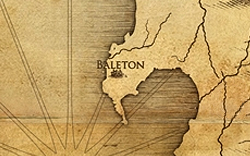
Fig. 1 - View of Penrose Bay from Colina Hill, 1753

Fig. 2 - View of the Roat Institute at night from Baleton, 1765
- Overall, Baleton looks Staithes [ref], England with the addition of the docks of Liverpool, England
- Rural District is similar to Wales Countryside with manors/houses/farms being spread out miles in between
The History of Baleton
Whale oil processing wasn't in place until approximately 1800 with Esmond Roseburrow's discovery. Ships were wind powered before this.
Timeline of Baleton
- pre 1750: Baleton is more or less a small fishing town near the coast and grows crops more inland. This causes two districts to arise, The Dock District and The Rural District. Everyone tends to live a simple agrarian style life. Families from around Gristol send their university aged children to The Roat Institute, in the Rural District.
- 1750 - 1780: As ships can travel farther and goods are desired throughout the Isles, intercontinental trade advances. With this, Baleton acts as an "exchange city", as it is half way between the north and south of Gristol, with a straight route to Serkonos and Tyvia.
- 1780 - 1800: Baleton thrives on trade, many from around Gristol moving to Baleton to make money on the ever busy docks. The Haley Merchant Company at this point in time accounts for 2/3 (two-thirds) of all trade related business. The Dock District expands. Crime stays relatively low as the unemployment rate is low. High rises, and more affluent individuals migrate to Baleton.
- post 1800: With the fall of the Haley Trading Company and the advent of whale oil powered ships, the need for Baleton diminishes. Wealthy families move to Dunwall. Crime and unemployment rises, leaving abandoned buildings and farms. Attendance at Roat falls but it remains. A small population increases with the rise of the Rat Plague in the 1830's.
- The rise and fall of Baleton is very similar to Liverpool as well during the 1960's [ref]
Notable people and companies of Baleton
- Hemlock. A poison derived from flowers grown near Penrose Bay.
- Elijah Roat (1612 - 1678). A Natural Philosopher who made advances in fishing and agriculture equipment.
- The Roat Institute. Named after the natural philosopher. An elite school for young adults to study industrial design, fisheries, agriculture, economics, and engineering.
- The Haley Merchant Company. For a time, the number one trading company throughout the Isles.
- The Baleton Flag. The most circulated newspaper in Baleton.
